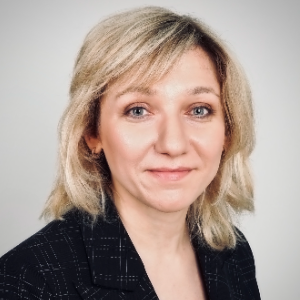Title : Fine dispersed tissue-specific scaffolds as a tool of tissue engineering
Abstract:
One of the ways to obtain tissue-specific scaffolds is decellularization. The tissue-specific extracellular matrix (ECM) proteins preserved during decellularization make it possible not only to optimize the conditions for prolonged vital activity of attached cells but also to stimulate the regeneration of damaged tissues. Grinding facilitates the diffusion of decellularizing solutions deep into the tissue and their removal, increases the effective surface area for cell adhesion, and also allows the use of scaffolds injection. In a series of studies, original technologies were developed for the production of finely dispersed tissue-specific scaffolds from decellularized fragments of the liver, pancreas and articular cartilage of a pig. The used technique of decellularization of the liver of a person with severe hepatosis allowed to obtain a liver scaffold with a residual amount of DNA less than 1%, capable of maintaining adhesion, proliferation, specific metabolic and secretory functions of HepG2. The fine dispersed scaffold of the rat pancreas preserved the fine-fibrous porous structure and the main fibrillar proteins of the pancreatic tissue, and also provided prolongation of the secretory ability and islets of Langerhans for 14 days in vitro. It was shown that on the 21st day of cultivation in a chondrogenic culture medium of cellular engineering structures based on decellularized micronized porcine articular cartilage, and mesenchymal stromal cells of human adipose tissue, viable cells forming a dense conglomerate with a matrix synthesizing glycosaminoglycans, and Type II collagen were observed in the samples. The results obtained indicate that the developed fine dispersed tissue-specific scaffolds based on decellularized fragments of the liver, pancreas and articular cartilage are biocompatible and can be used in the relevant areas of tissue engineering.
Acknowledgments: The research was carried out at the expense of the Russian Science Foundation grant No. 21-15-00251, https://rscf.ru/project/21-15-00251/ (Accessed on 07 July 2023).
Audience Take Away:
- Basic aspects of decellularization methods
- New opportunities offered by the using the technology of decellularization of fine dispersed tissue particles
- Information about ongoing research on the formation of cell-engineered constructs with fine dispersed decellularized particles in the field of tissue engineering of the liver, pancreas and articular cartilage



